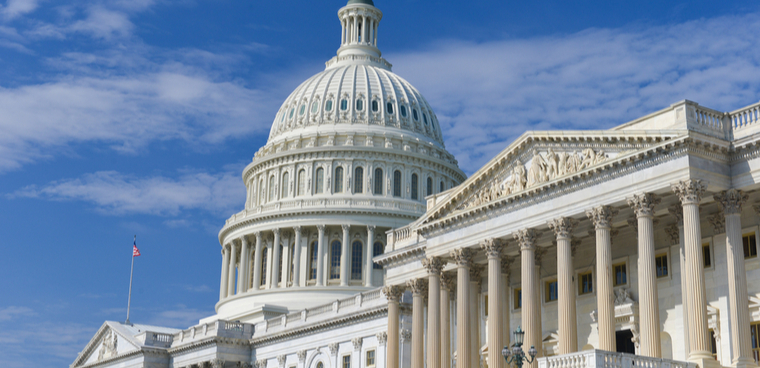Senate passes NDAA but veto threat looms
Lawmakers in the House and Senate passed the annual defense bill by margins sufficient to override a presidential veto but some Republican may decide to switch their votes if President Trump decides to reject the bill for reasons unrelated to national security.

The U.S. Senate has passed the $741 billion 2021 defense authorization bill with an overwhelming majority, 84-13. The bipartisan support of the bill follows that of the House of Representatives, which passed the bill Tuesday, 335-78, in having a large enough majority to override a presidential veto.
President Donald Trump has voiced his intent to veto the 2021 National Defense Authorization Act (NDAA) for a range of issues, including provisions that call for the renaming of military installations named for Confederate leaders, and speech protections for social media companies classified under Section 230 of the Communications Decency Act.
Congressional leaders have been firm in their intent to pass the bill before the session ends Jan. 3 to avoid disruptions in military pay, training, construction projects, and funding for certain programs. The president has 10 days from passage to sign the bill into law.
Everett Kelley, the president the American Federation of Government Employees, urged Congress to support the bill in a veto override vote to protect defense workers.
"Given the overwhelming bipartisan support for the final bill, and the importance of this legislation to the military and a functioning civil service, it is critical for lawmakers to ensure final passage in the event of a White House veto," Kelley said in a statement. "Failure to approve the NDAA before the end of the year would, among other things, result in tens of thousands of DOD employees deployed or permanently working overseas incurring a sizable pay cut due to a lapse in their special pay authority."
The push for override vote comes after some Republicans have indicated they may change their votes to show support to the outgoing president.
Rep. Mac Thornberry (R-Texas), the House Armed Services Committee's ranking member, told reporters Dec. 7 that many of the reasons that some House Republicans previously voted against an earlier version of the bill "have gone away." And that while "it's possible" that some House Republicans could flip their votes, the consequences would impact military pay and bipartisan provisions included to boost competition with China.
"If somebody is going to vote no on a bill because of what's not in it that has nothing to do with it, then the possibilities are limitless," Thornberry said. "But that can't be the standard. We've got to focus on what the bill does do, and what it means for our troops and national security."
HASC Chairman Adam Smith (D-Wash.) told reporters earlier this week that pushing for an override vote if required was the only path forward.
"Sometimes we do a multi-year authorization for a bill and survive. Other times, it's up at this point, so there will be programs that we will have to stop on because there's not proper authorization," he said.
"The path for me is clear. We have an excellent bill."
NEXT STORY: Quick Hits






